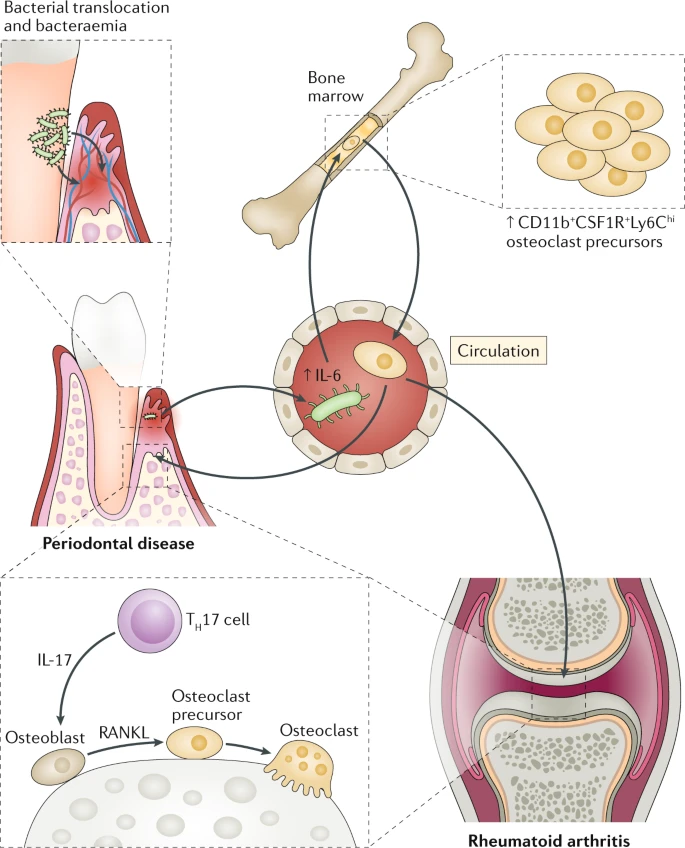March 14, 2023 — A team of researchers has reported a link between periodontitis and rheumatoid arthritis flare-ups, furthering research that could lead to therapies for the two conditions, according to a study published in Science Translational Medicine.
Earlier, computational biologist Vicky Yao, PhD, of Rice University in Houston, discovered traces of bacteria linked with periodontal disease in samples collected from people with rheumatoid arthritis. She sought to further explore the connection.
“Tracing this connection between the two conditions could help develop therapies for rheumatoid arthritis, an autoimmune inflammatory disease that attacks the lining of the joints and can cause heart-, lung- and eye problems,” Rice University said in a statement.
Yao and colleagues used data from rheumatoid arthritis patients collected by Drs. Dana Orange and Bob Darnell, both of Rockefeller University in New York City. They found that the microbes that changed prior to arthritis flare-ups were associated with gum disease.
“[Perhaps we] could prescribe some kind of mouthwash to help prevent rheumatoid arthritis flares,” Yao said (Sci Transl Med, February 22, 2023, Vol. 15:684, abq8476).
The investigators plan to further explore whether a connection exists between microbial or viral signatures and other diseases, noting that “the approach that led to the study could prove fruitful in other disease contexts, such as cancer,” according to the university.
“The hope here is that if we find some interesting microbial or viral signatures that are associated with cancer, we can then identify productive experimental directions to pursue,” Yao said. “For instance, if having a tumor creates this hotbed of specific microbes that we recognize, then we can maybe use that knowledge as a means to diagnose the cancer sooner or in a less invasive or costly way. Or, if you have microbes that have a very strong association with survival rates, that can help with prognosis. And if experiments confirm a causal link between a specific virus or bacteria and a type of cancer, then, of course, that could be useful for therapeutics.”

